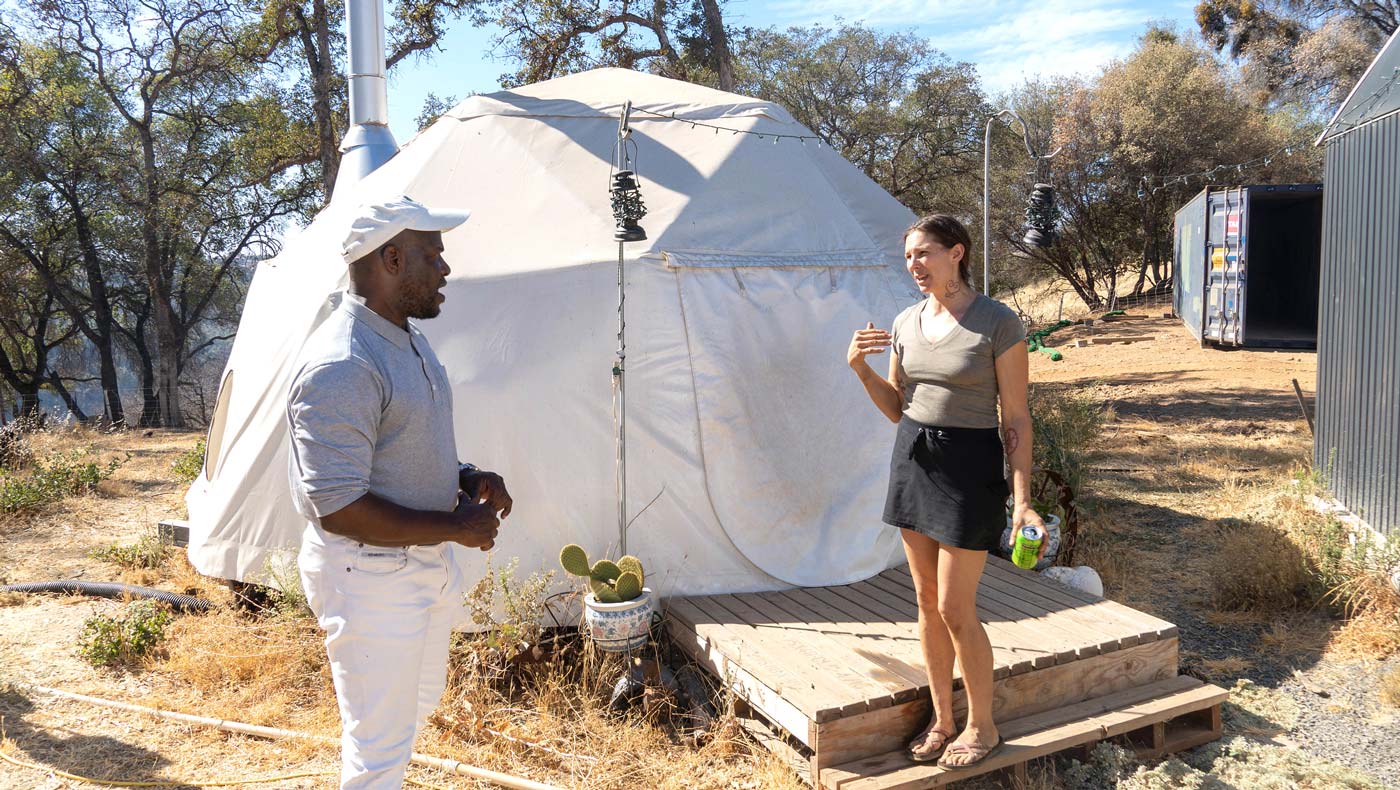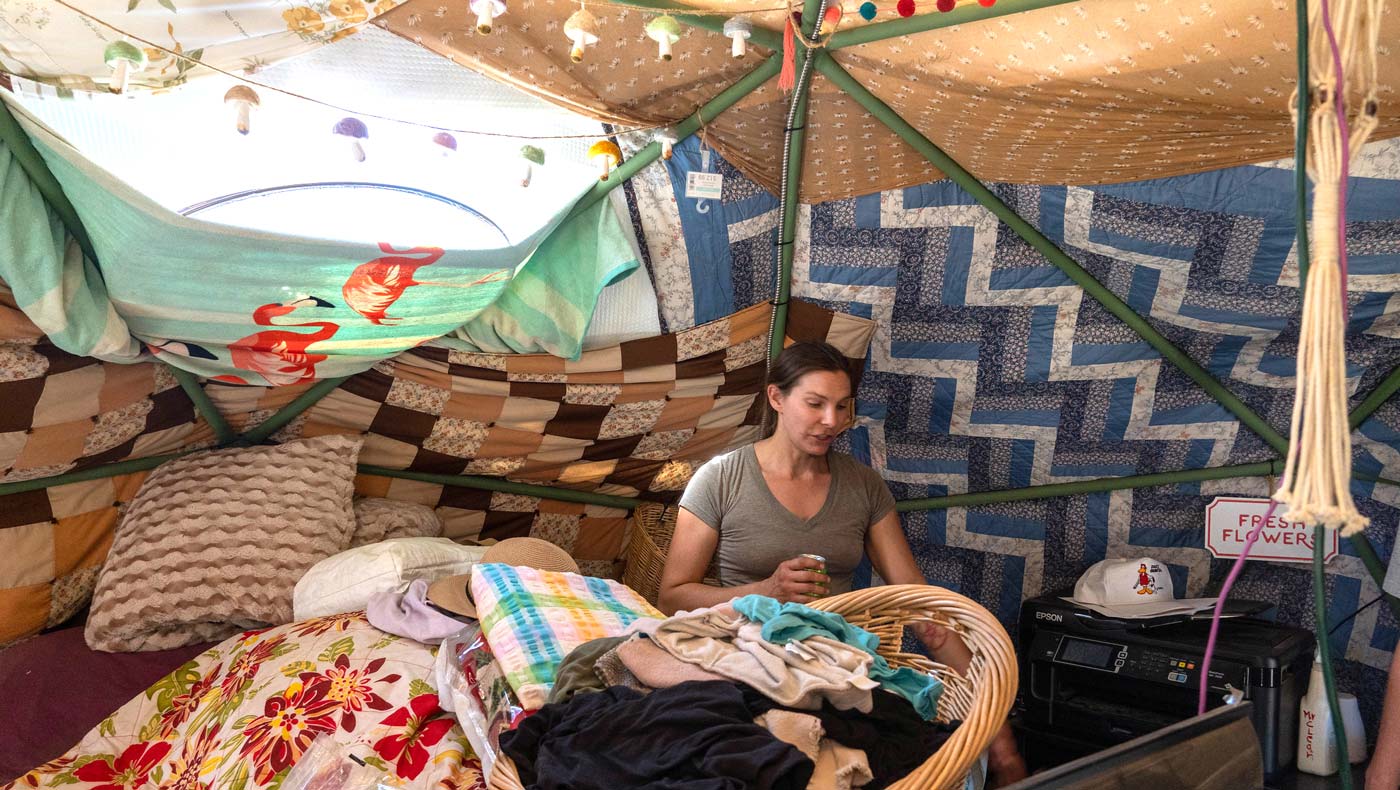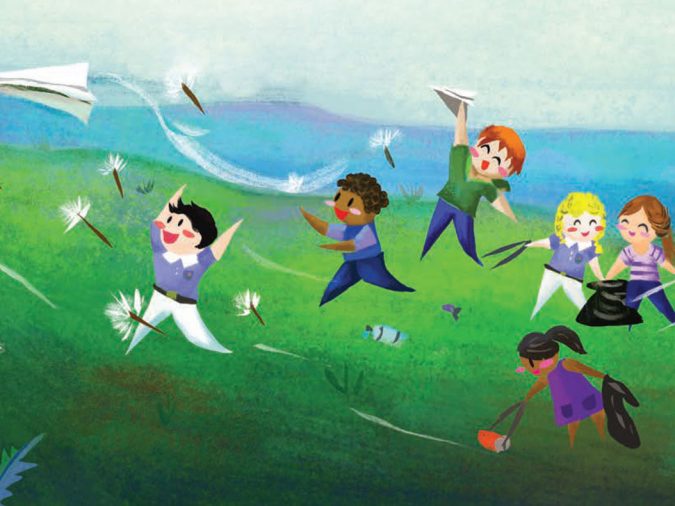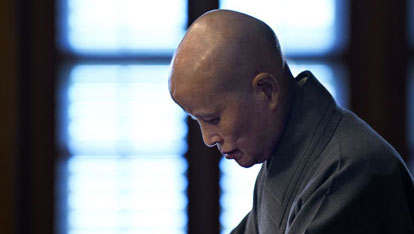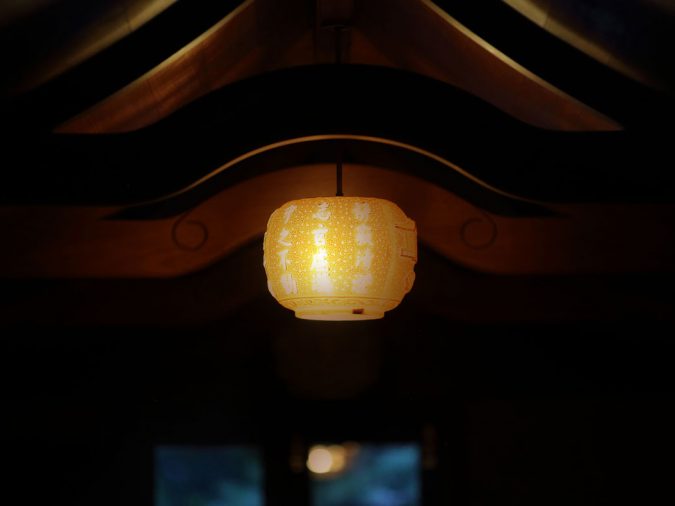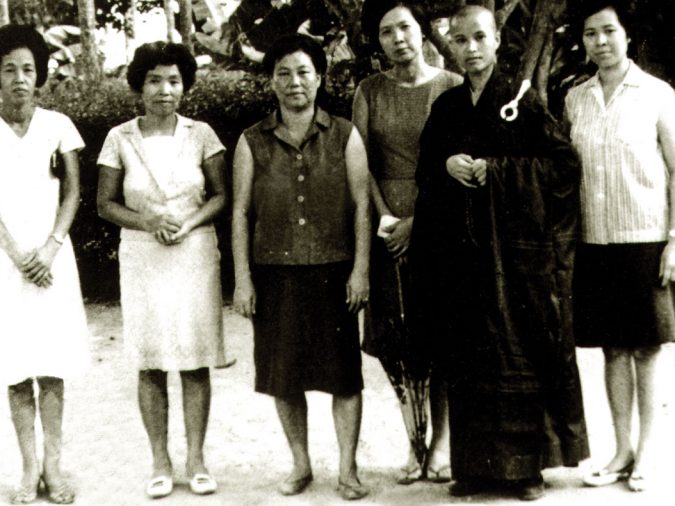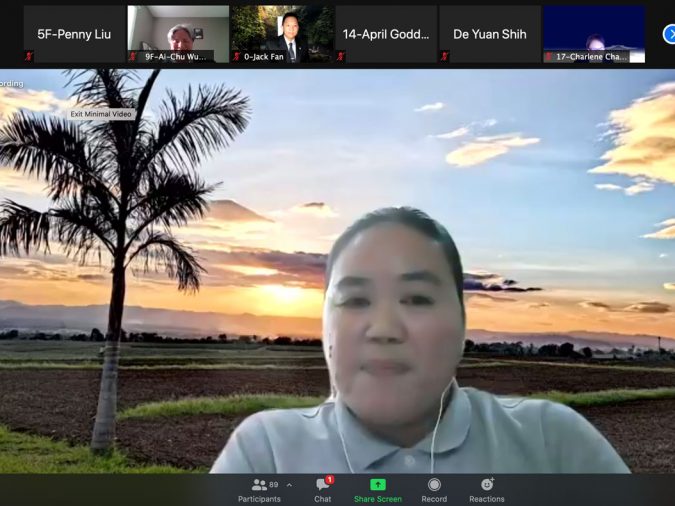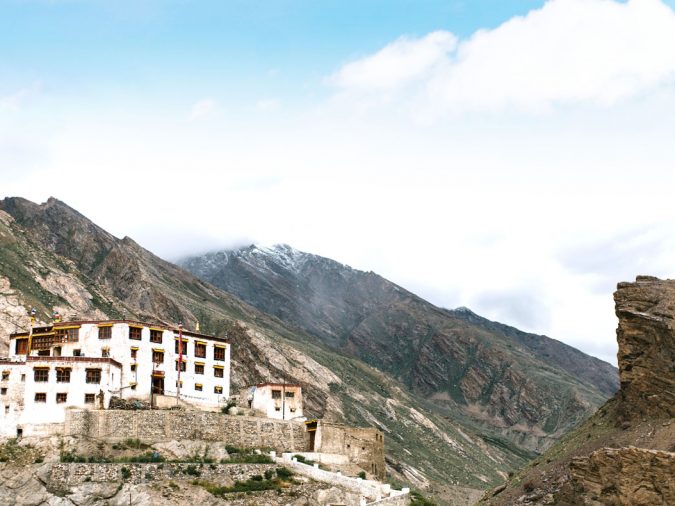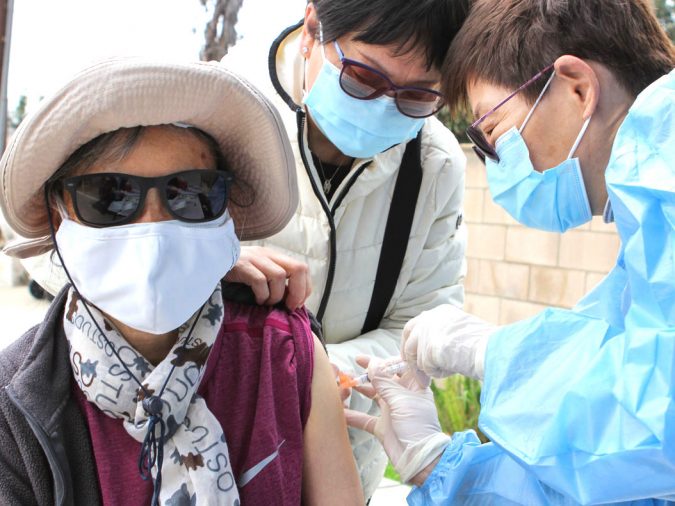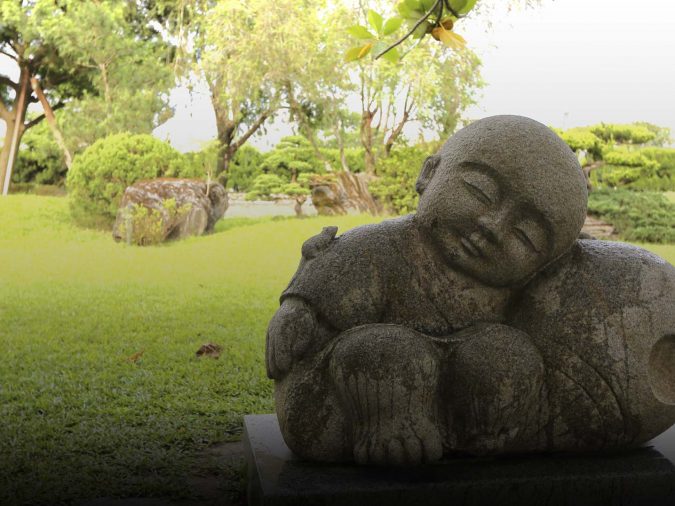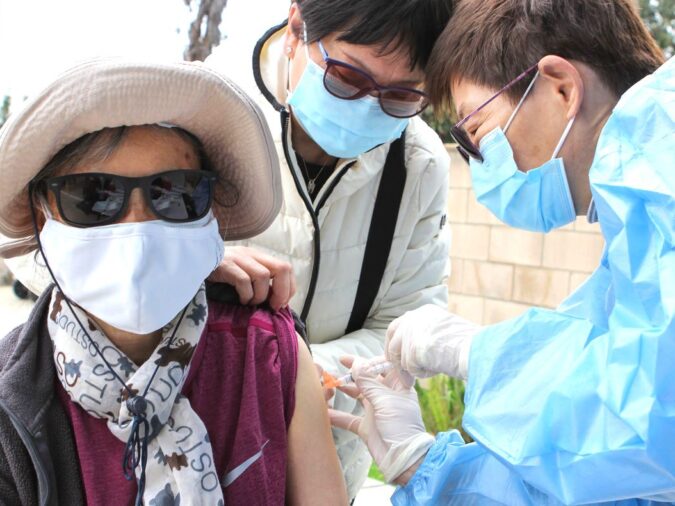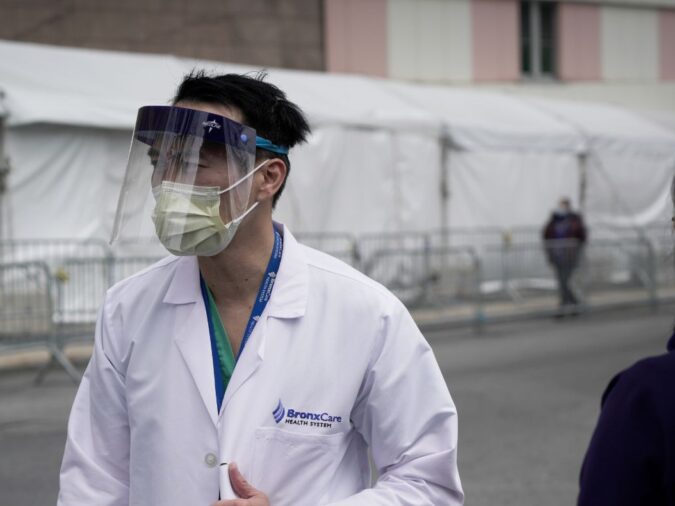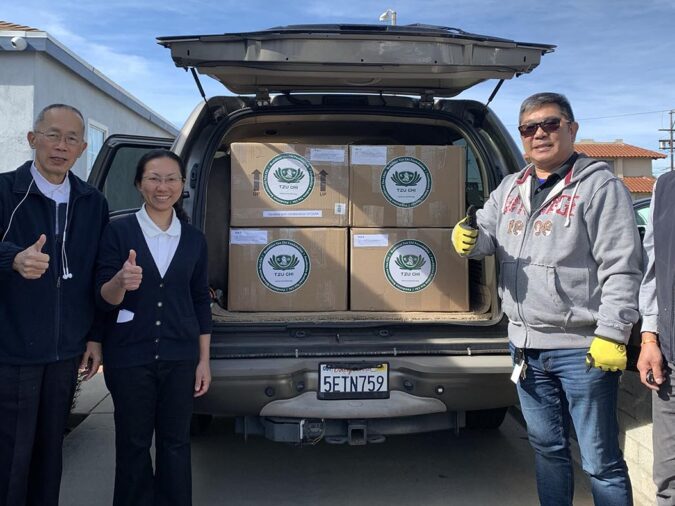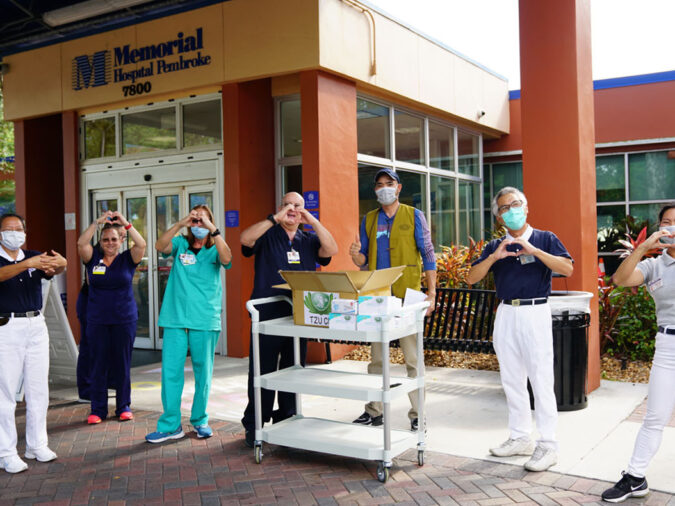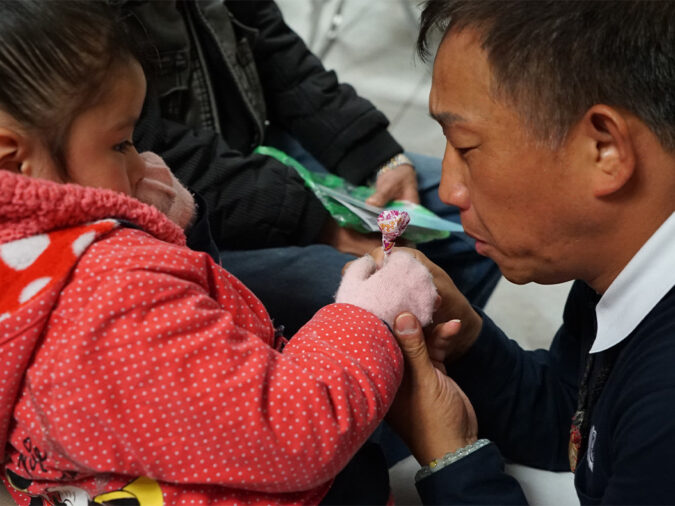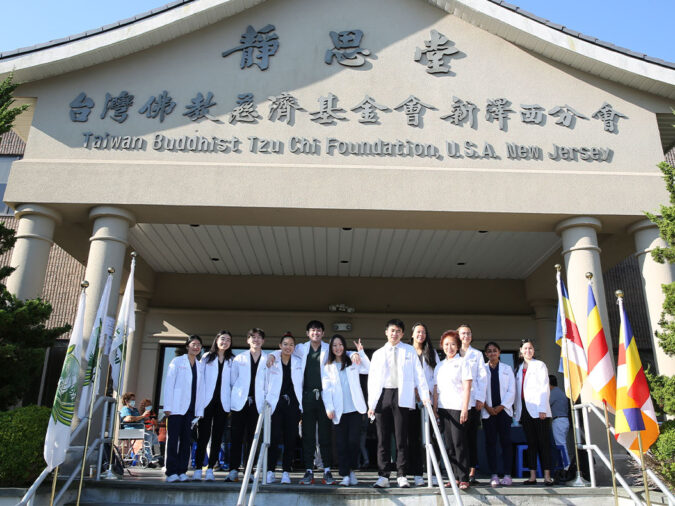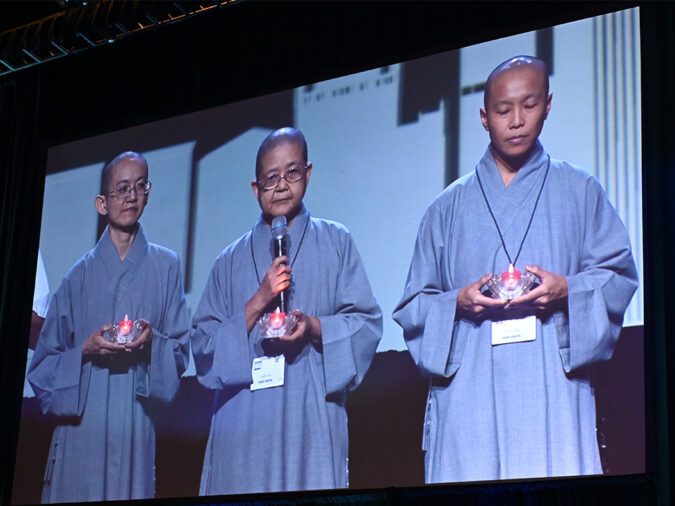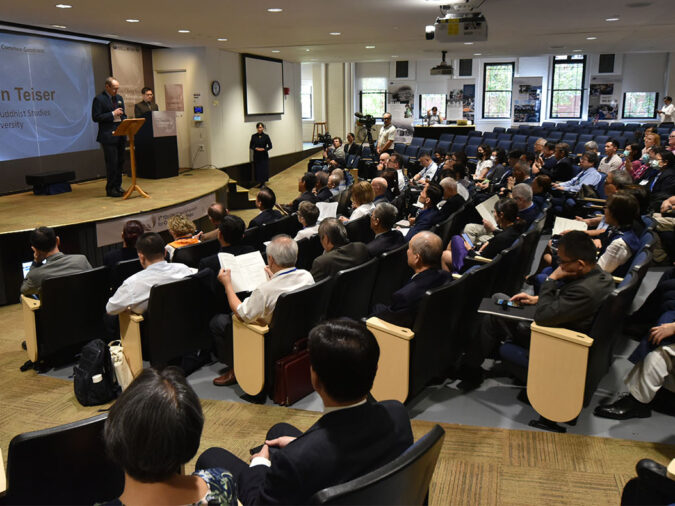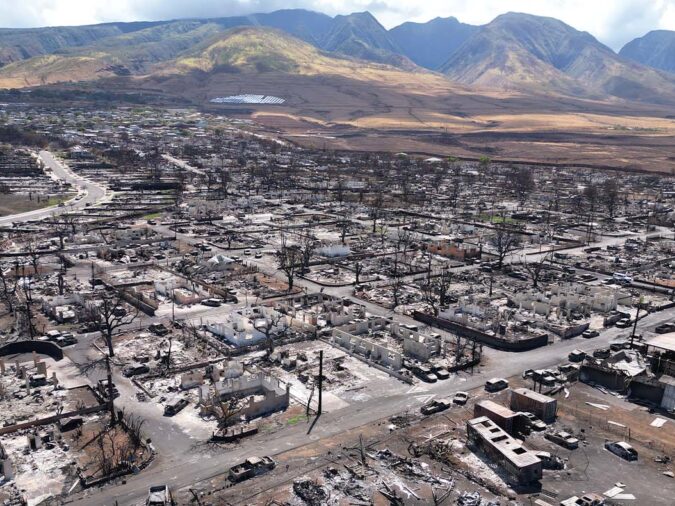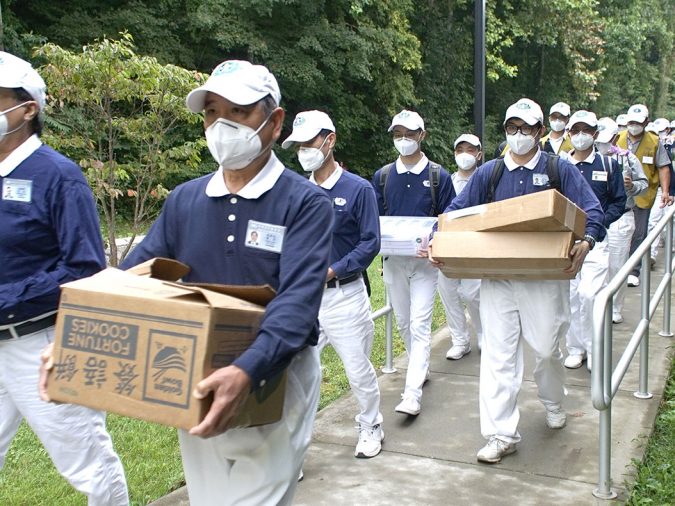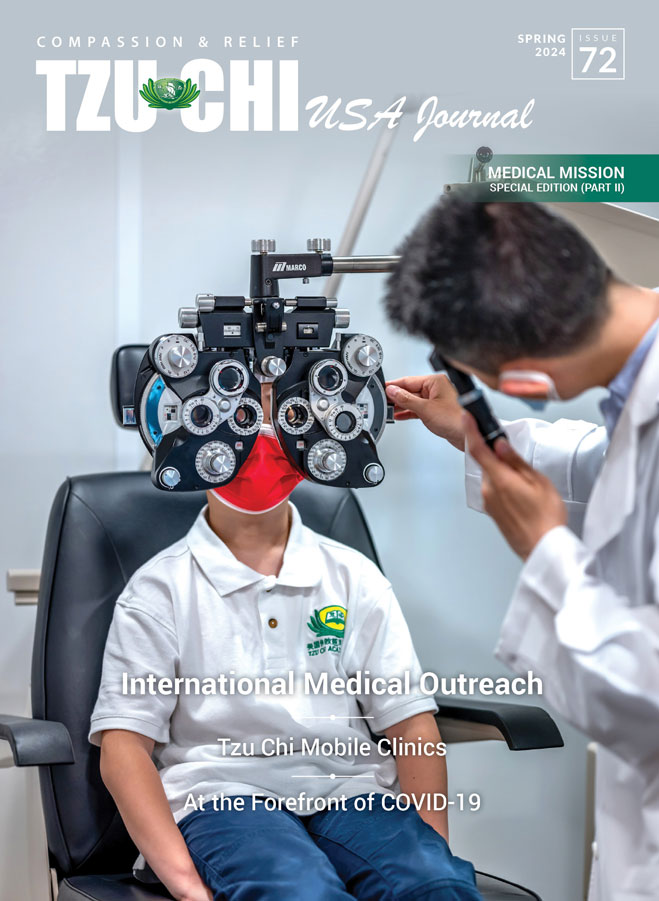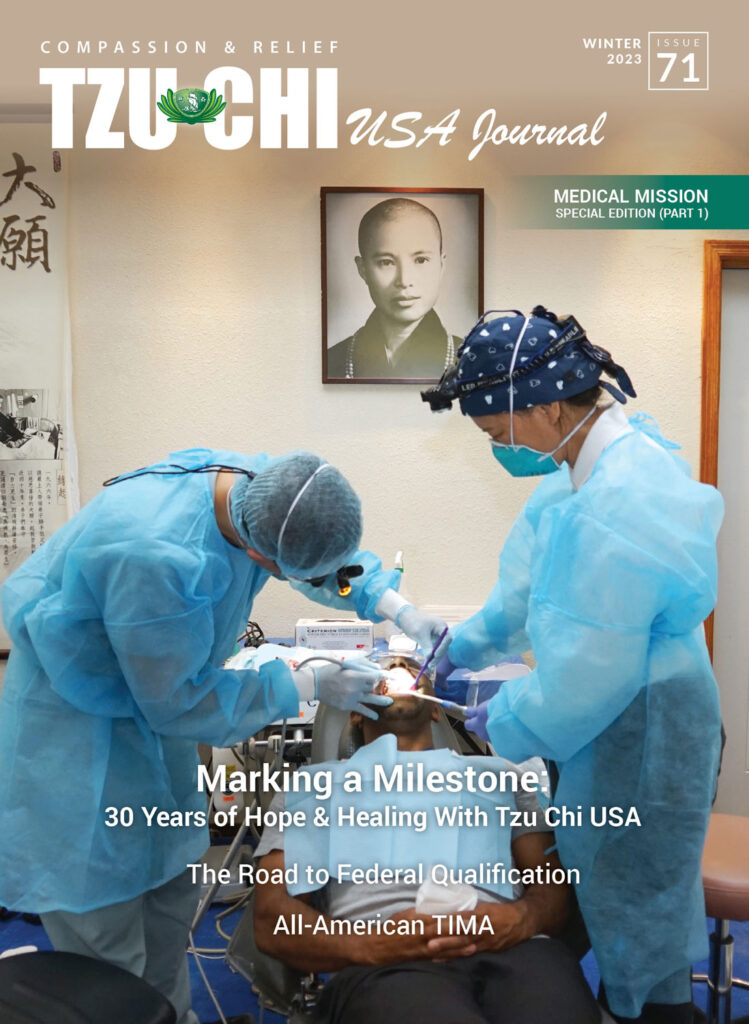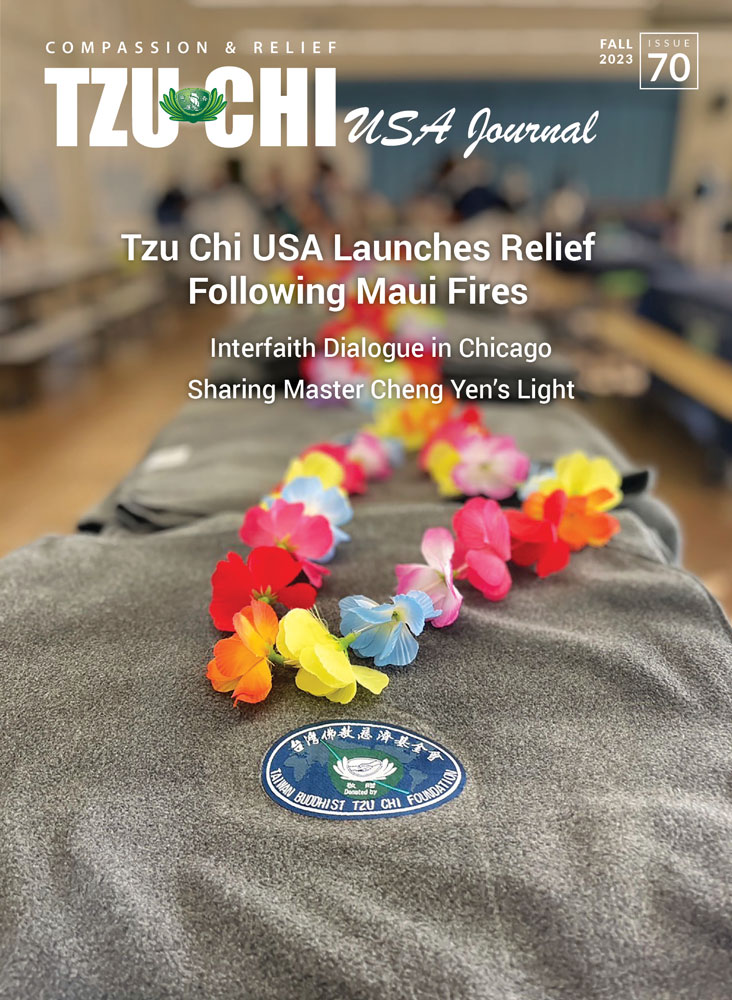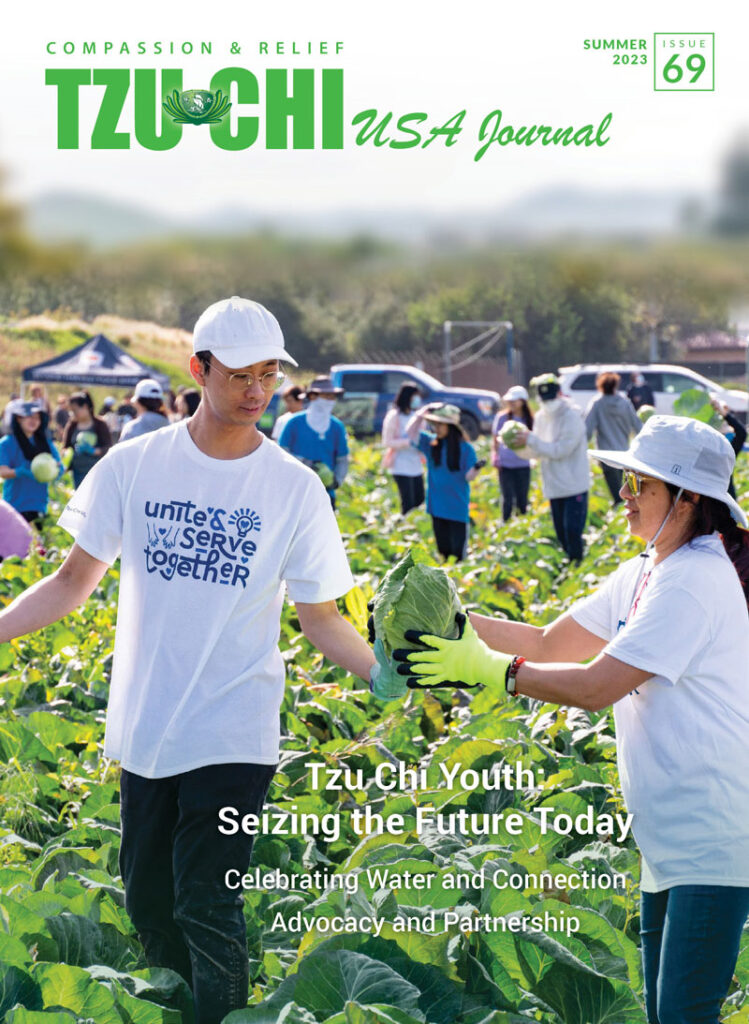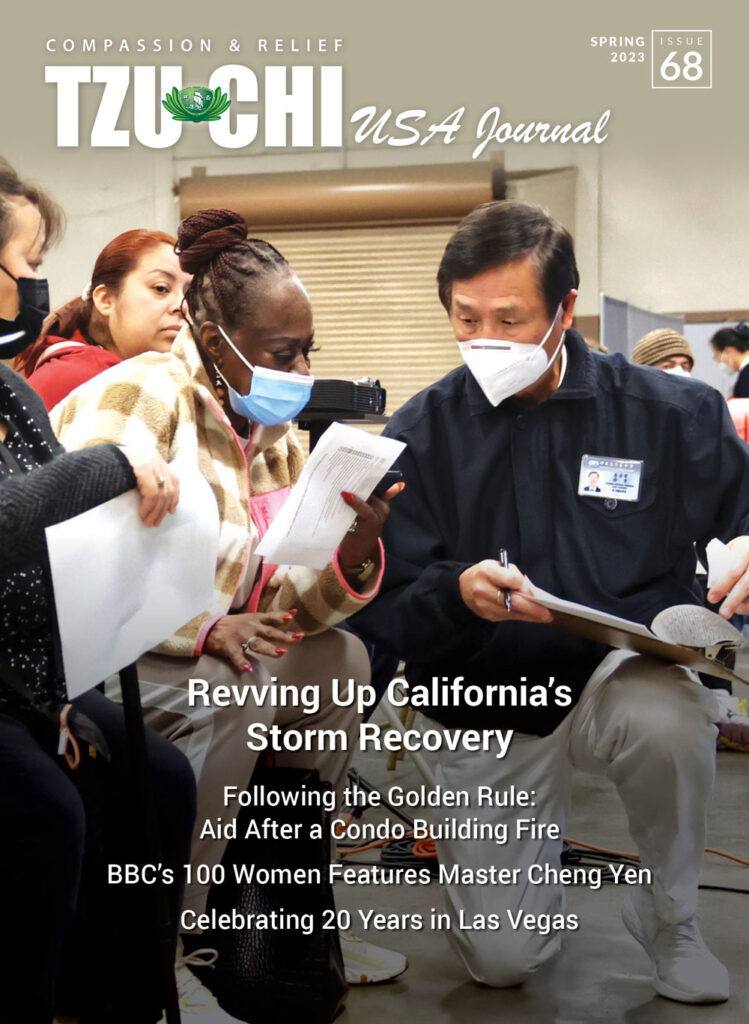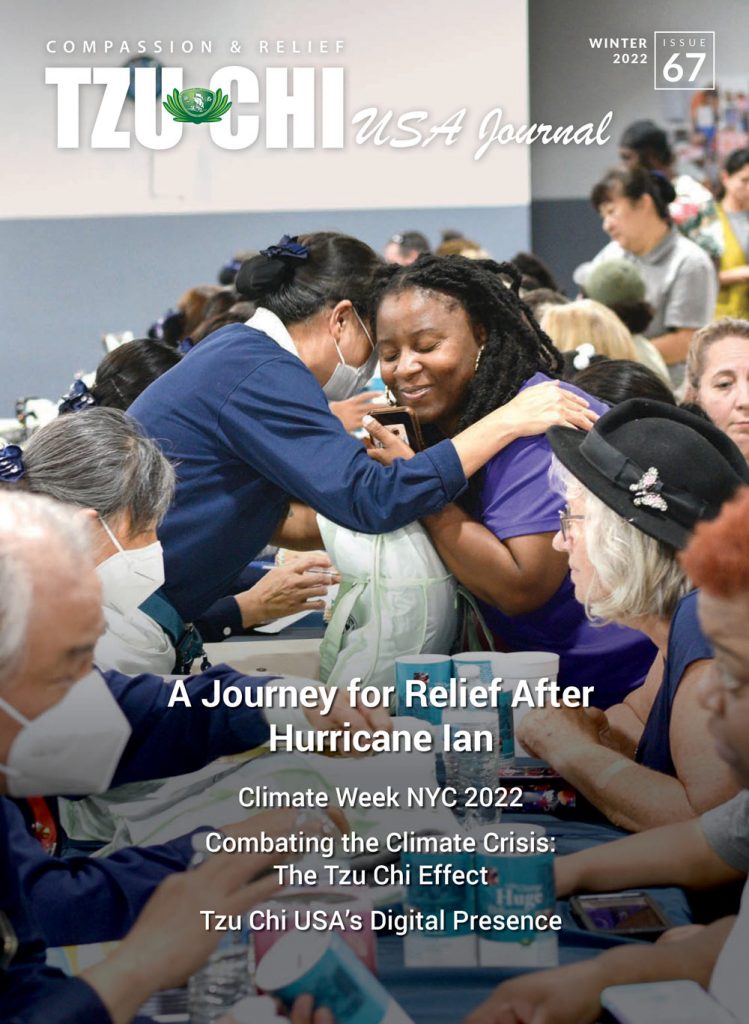Helping Camp Fire Survivors Rediscover the Joy of “Home Sweet Home”
By Ida Eva Zielinska
Published #61 | Summer 2021 Issue
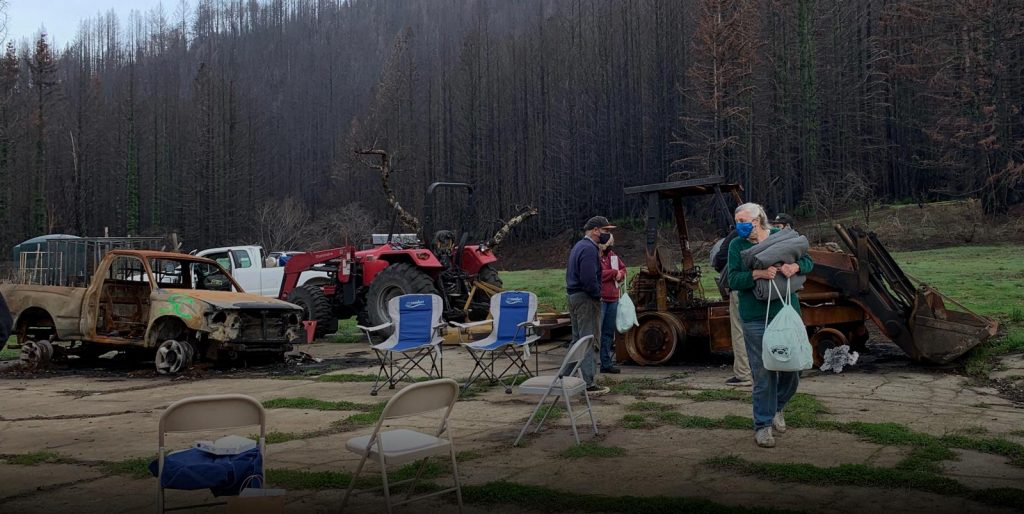
SHARE
Home Sweet Home.” We all appreciate coming home after being away, yet many wildfire disaster survivors who escaped the flames return only to discover ash and debris on their land in place of the house that once stood there.
This certainly holds true for numerous survivors of the 2018 Camp Fire, one of the most destructive wildfires in California’s history. The blaze that ignited on October 8 burned over 153,000 acres in the town of Paradise and nearby unincorporated communities in Butte County, an area approximately the size of Chicago. And, it destroyed nearly 19,000 structures, almost 14,000 of which were residences.
The path to recovery can be arduous for many wildfire survivors. Those without insurance or whose disaster damage is ineligible for coverage under their plan can find themselves facing an uphill battle in seeking funds to rebuild. In search of other means, they may discover that lenders typically demand a steady livelihood, but many survivors have lost their source of income following a disaster. All combined, these can become insurmountable barriers to replacing a residence destroyed by wildfire.
Even years later, some families who chose to stay put on their land may find that realizing their dream of rebuilding or bringing another form of safe and secure housing onto their properties remains out of reach. And yet, for the Brazell family, all this was about to change.
Relief for the Brazell Family
For Jason and Andrea Brazell, whose house in Concow burned in the Camp Fire, the rebuilding project was definitely out of reach while they remained attached to and simply unable to decamp from their land. “We don’t have any money for a house,” Jason explained, and Andrea added, “We want to stay, this is all we have, this property is it.” And stay they did, despite rugged living conditions.
“We had no hot water for one year, we had no power for one year,” details Andrea, while Jason summed it up, saying that the couple and their five children were “just surviving.”
Tzu Chi USA provided extensive emergency disaster aid immediately following the Camp Fire, which brought hope and relief to nearly 8,000 thousand families, including the Brazells. Aware of how rocky and lengthy the path to full recovery typically is and taking into account the level of need in the area culminated in establishing the Tzu Chi Chico Recovery Center in Chico to follow up with long-term recovery services.
Tzu Chi USA’s services here include disaster case management, housing support, medical outreach, educational programs, humanistic cultural events, spiritual and emotional support, and resource referrals. This array of assistance brought disaster case manager Bobbie Rae Jones, herself a Camp Fire survivor, to the Brazell’s Concow property in October 2019.
Bobbie found the household of seven living in a fifth-wheel trailer, and conditions were far from ideal. They had an outdoor kitchen, no fridge or sink, and had to manually boil water and pour it into a basin connected to the trailer’s water pipe for washing and showering.
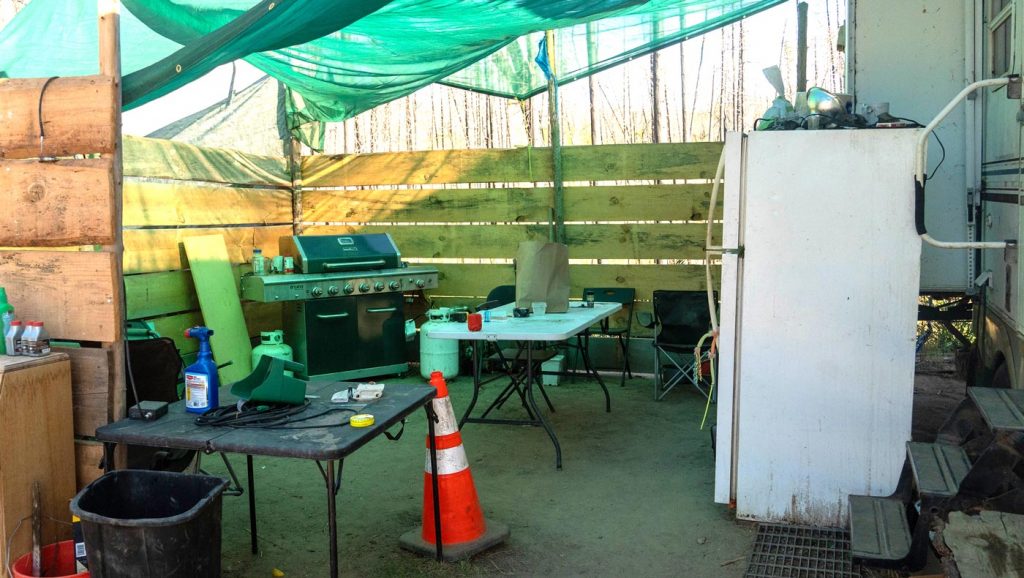
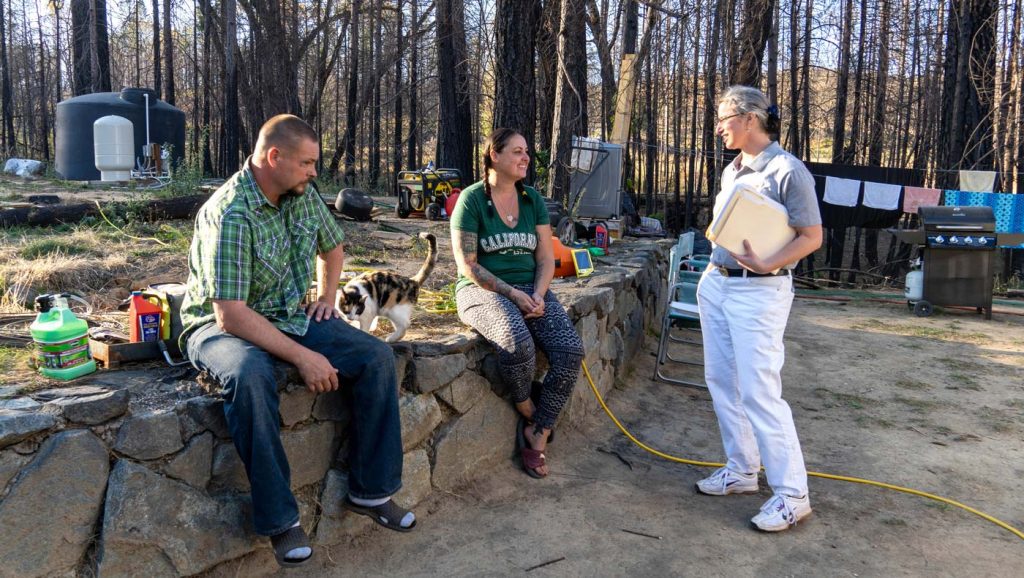
These physical hardships only added grief to the family’s emotional trauma since this wasn’t the first time they had ended up “homeless.” In 2016, their Christmas tree caught fire and left their home in ashes. They managed to get a loan and bought a new house, and then the Camp Fire came through in 2018.
Soon after Bobble met the Brazells, intending to help the family build a recovery plan, a new resource appeared on the horizon at the beginning of November 2019. The Camp Fire Long Term Recovery Group, now known as the Camp Fire Collaborative, launched the Camp Fire Manufactured Home Replacement Program, funded in part by the international relief non-profit Samaritan’s Purse, Chico’s own North Valley Community Foundation, Wells Fargo, American Red Cross, and the Center for Disaster Philanthropy.
Through the program, Camp Fire affected families meeting certain criteria could obtain a replacement home, and Bobbie brought the Brazells all the paperwork. Lo and behold, the couple’s application was quickly approved:
The selection committee said an easy ‘yes’ to those who were uninsured, who lived in a manufactured home, that have the financial ability to provide for their own taxes and insurance going forward, and that this was their primary residence and they were homeowners at the time of the fire.
Tracy Davis
Community Project Manager
Camp Fire Collaborative
Still, steps to final delivery of their new home were lengthy, and delays due to the COVID-19 pandemic and the North Complex Fire that ignited in August 2020 and affected Butte County extended the wait. Nonetheless, on October 13, 2020, the family’s new manufactured home was on its way and finally pulled onto their land.
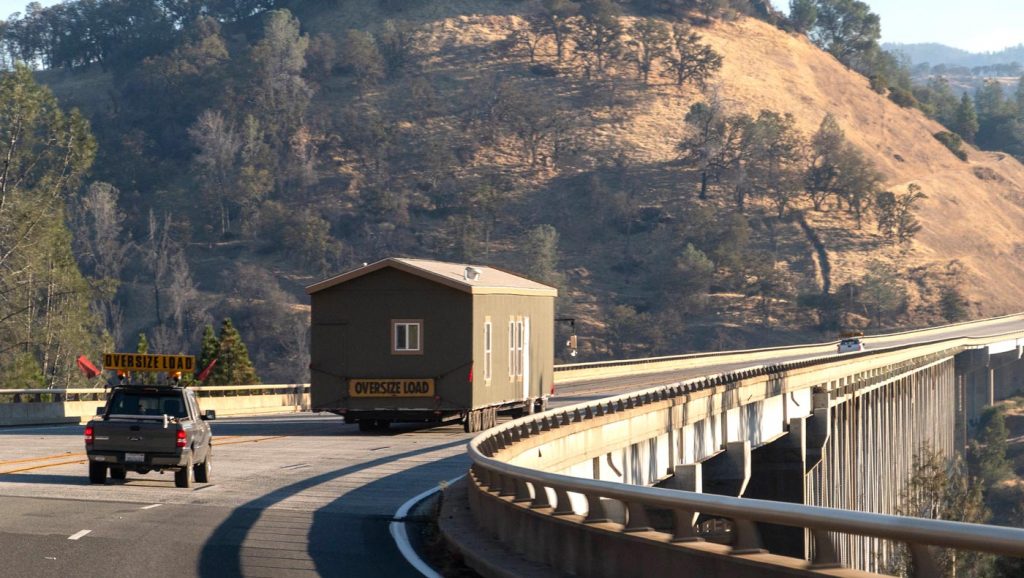
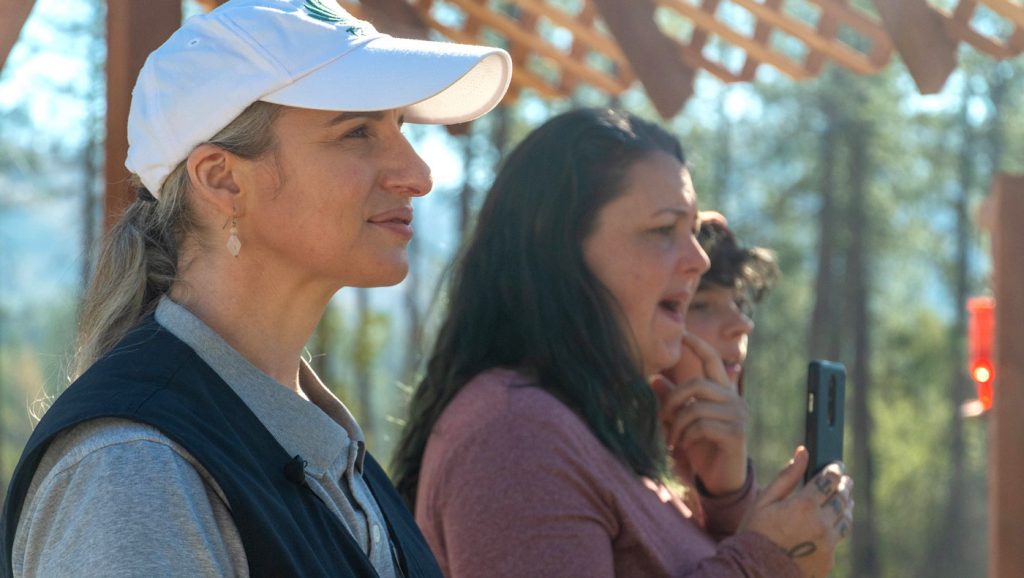
“Oh, my God. There it is!” Andrea exclaimed, “Am I dreaming? Is this real?” Jason was equally ecstatic, “We get to be stable again, cook normally, bathe normally, have an actual living room that the family can sit in together, not tripping over each other.”
Regarding the fifth-wheel trailer they no longer needed, Jason said they would give it to another homeless family. “We know what it is like to be homeless, obviously. We just feel it’s the right thing to help someone else out.” As for Tzu Chi Chico and Bobbie, the disaster case manager who genuinely took their situation to heart, he gratefully said:
I think you guys are a great organization. I mean anyone that can volunteer and go help people just out of the goodness of their heart because they want to, I mean, that’s somebody you want to know in life.
Jason Brazell
Care Recipient
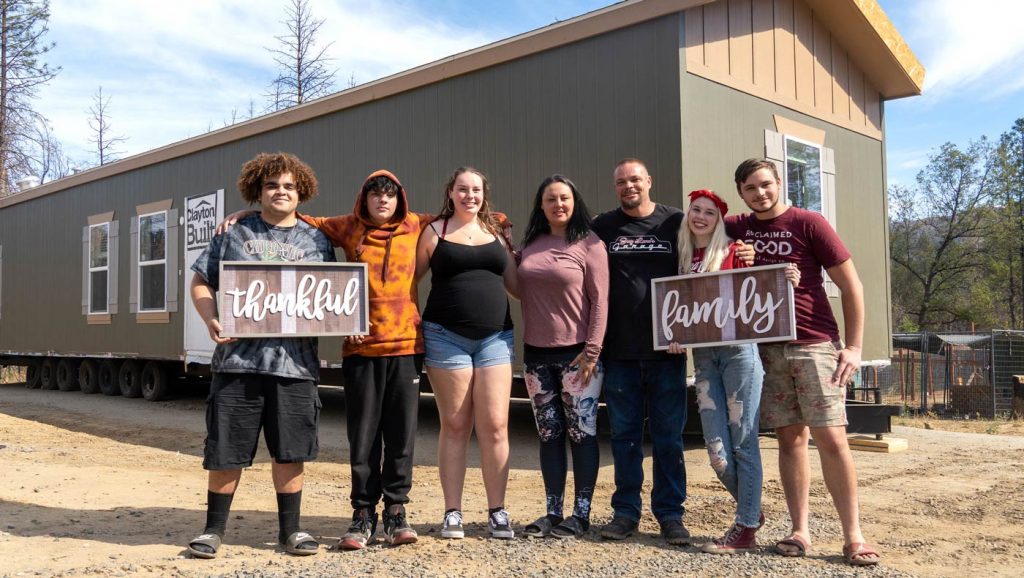
Thankfully, the Brazells are not the only ones to benefit from this program. Another family who lost their home in Concow during the Camp Fire also received a home with the help of Tzu Chi USA’s disaster case management team in Chico, who facilitated the process.
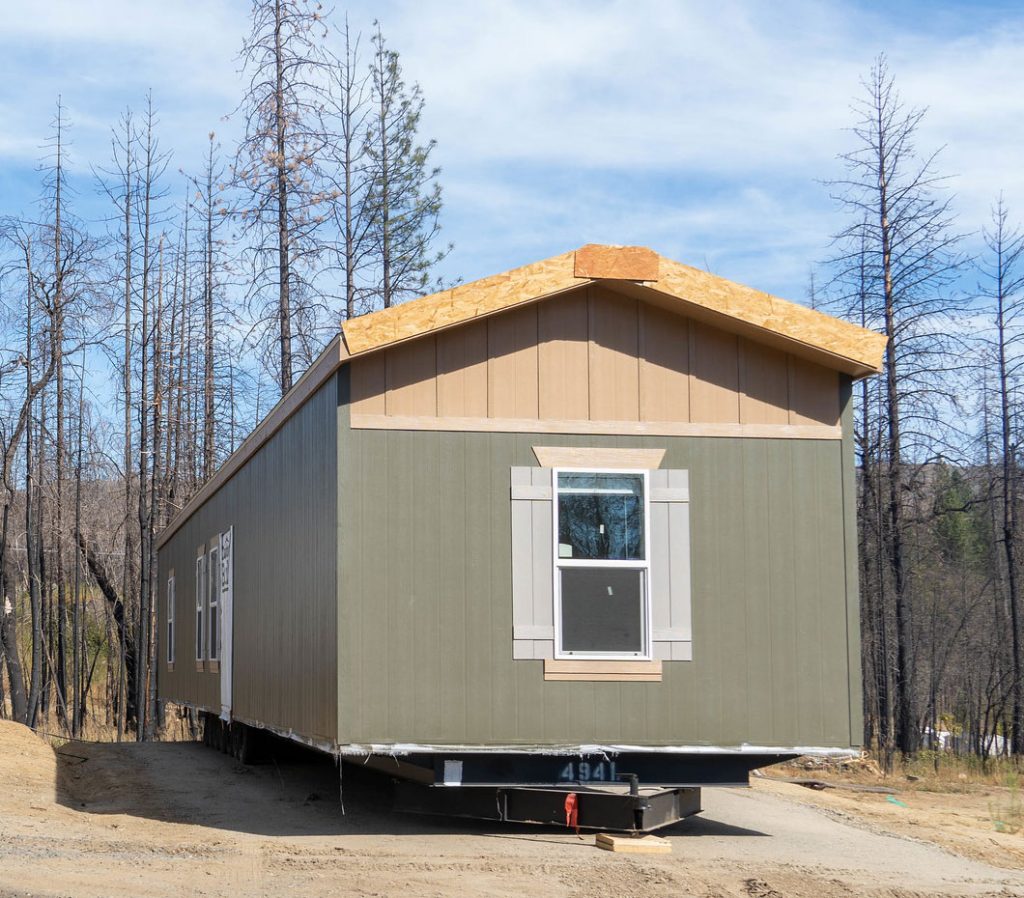
Reason to Rejoice for the Zangrilli Family
Cheetah and Samantha Zangrilli had been living in a dome tent on their property for more than a year when Bobbie Rae Jones from the Tzu Chi Chico Recovery Center first met them. The Camp Fire was not the only disaster to affect this couple. The North Complex Fire in 2020 had also forced them to move into a relative’s home because of the dangerous smoke conditions in the area.
Bobbie was determined to do everything possible to help them through this unsettling string of misfortunes. “I was really drawn to help them even more, especially since it was disaster upon disaster upon disaster. We’ve had three disasters in this county. The people in the under-represented areas who are a little more marginalized, they need more help,” she recounts.
Bobbie’s help was effective and greatly appreciated. “It was really frustrating at the beginning actually. It was a lot of finding out information on my own. But when she became my case manager, it kind of cut that time in half which helped me get more resources, get my car fixed so I can make more money to provide for my business and my family,” Samantha explained.
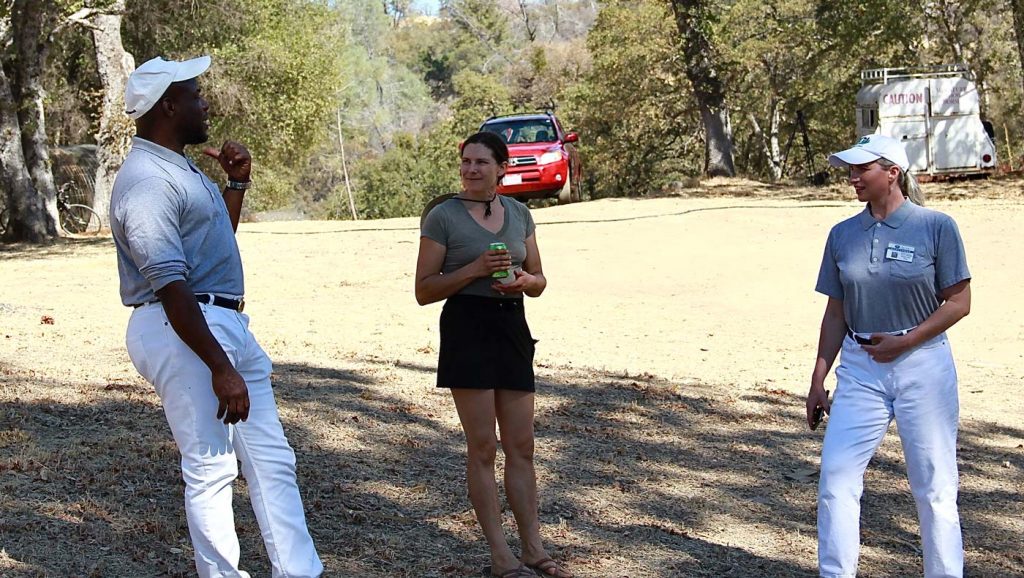
When the new manufactured home finally arrived and was placed on the Zangrilli’s property in Concow, Samantha described her reaction as “Elated! Like a bubbling soda that is fizzing over” and ran over to hug the house. Finally, the couple could focus on making a living rather than worrying about where to lay their heads at night. And, their livelihood involves serving their community in their particular way by growing flowers to make essential oils and developing greenhouse mushroom cultivation.
We want to just keep growing food, like, we got so halted from the Camp Fire. This [home] is going to help us reach back, reach down and help more people. That’s been our whole goal to feed Butte County, to find our niche, to be sustainable, to take care of this particular plot of land so, you know, there’s a lot of history here.
Samantha Zangrilli
Care Recipient
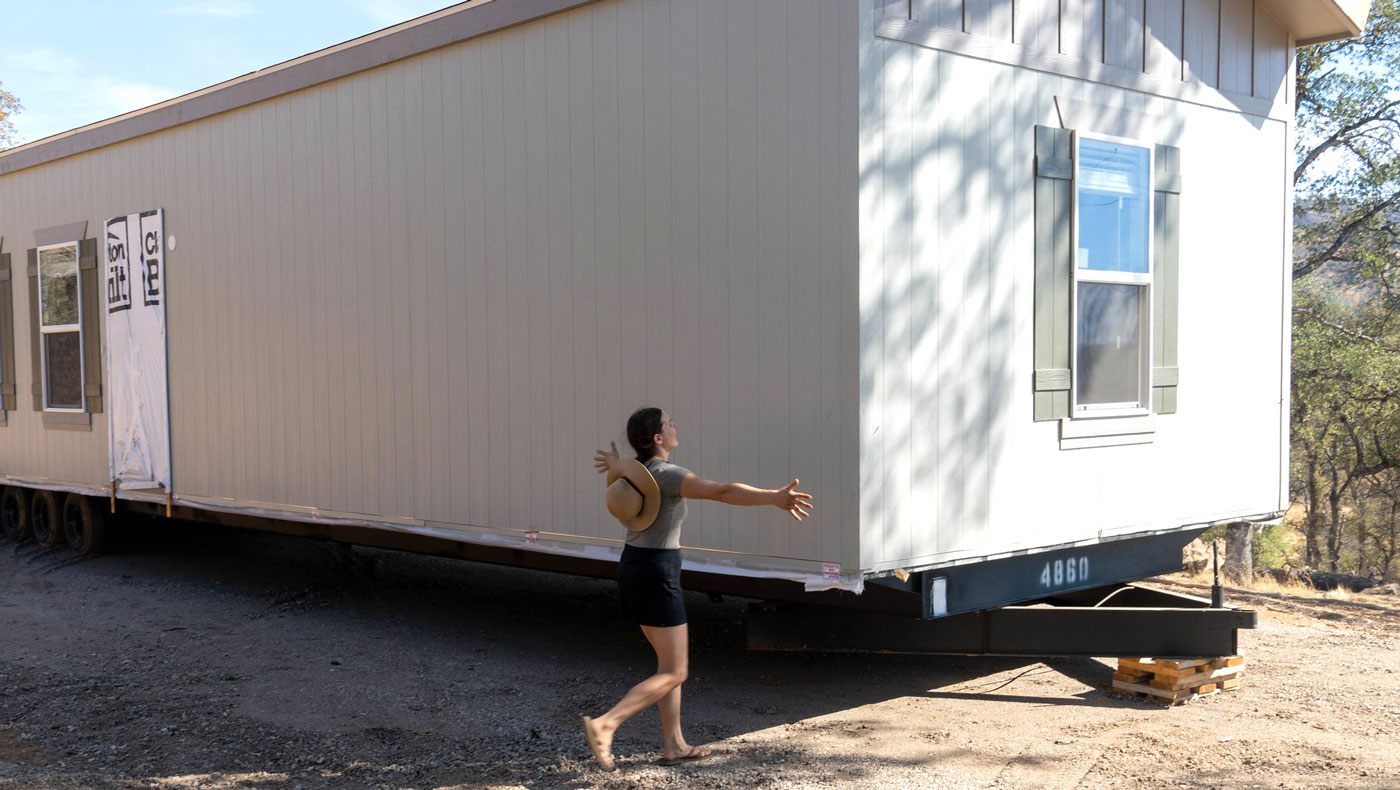
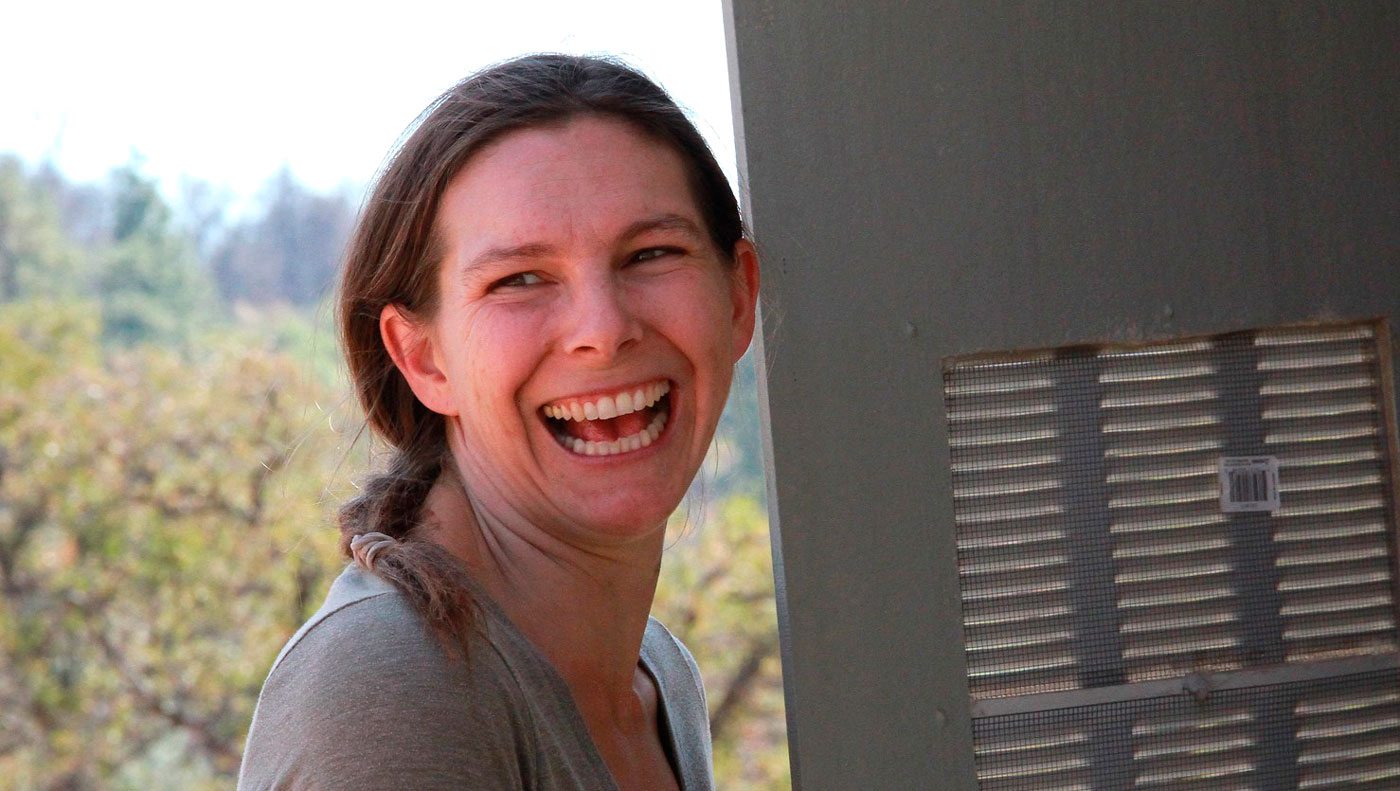

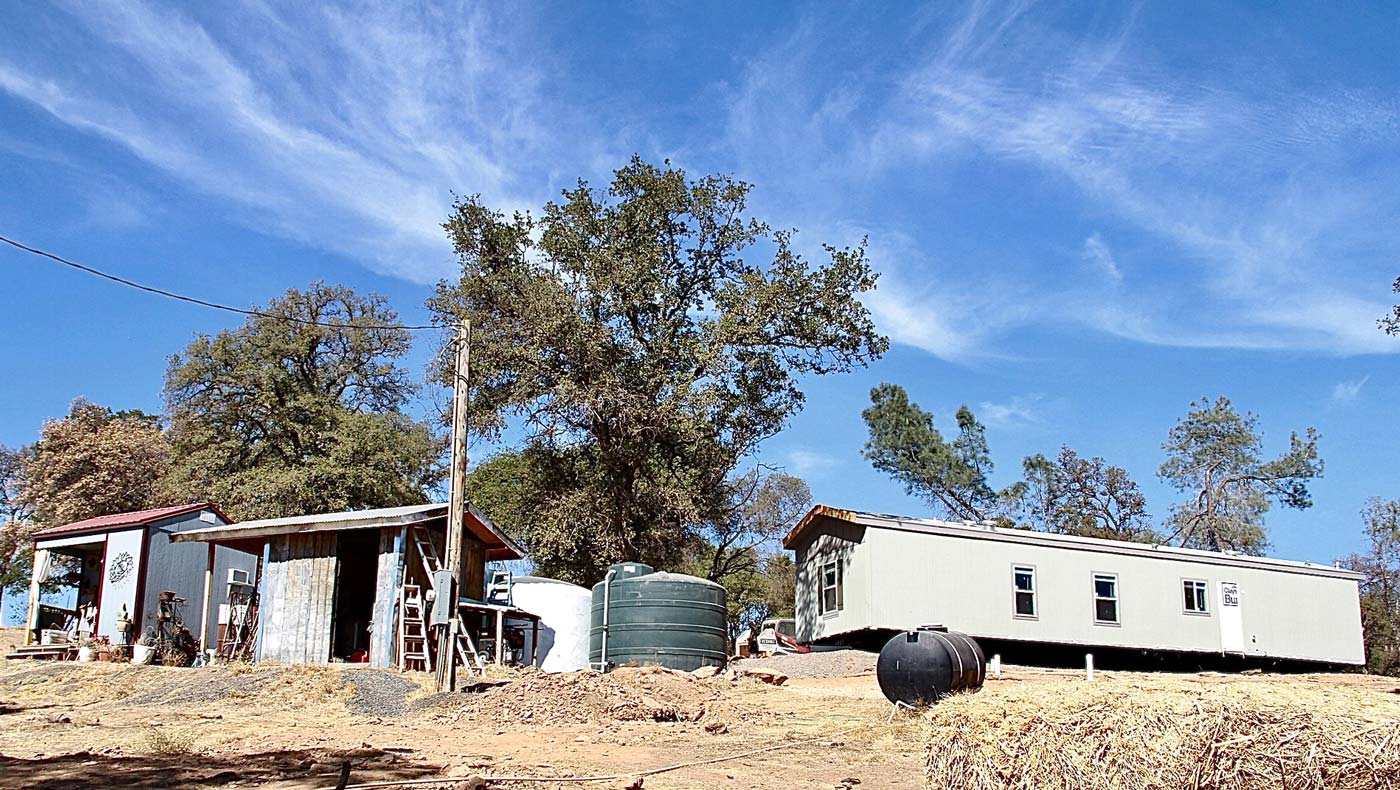
Alternative Housing Solutions Are a Beacon of Hope
The Camp Fire Manufactured Home Replacement Program has been a blessing for many families, yet finding other housing options is equally critical, as not everyone meets that program’s criteria. While providing disaster case management services, Tzu Chi is also proactively getting involved and collaborating with partner agencies to pursue alternative housing solutions to meet the rebuilding needs gap in communities still struggling to recover after this devastating wildfire.
A fruitful partnership has emerged with the Tiny Pine Foundation, a non-profit that gives fire survivors tiny custom homes built by volunteers and funded entirely by donations. Houses are excessively costly to build in fire-damaged areas, on top of which contractors are in high demand, as there are only so few of them. Given these factors, a tiny home built by volunteers, which only requires a materials budget of around $9,000, can be a housing solution within reach for many families.
Alyssa Nolan-Cain, Founder and President of the organization, first learned about Tzu Chi in 2008, when she lost her home due to the Camp Fire, and received our disaster aid, recalling how “you guys were the people that helped me the most.” She started on her recovery path by learning how to build a tiny house, then founded the non-profit. “It really helps me personally, launching some campaigns to help other people,” she says, exhibiting a strong sense of solidarity with the community of wildfire survivors.
Thanks to generous donors and volunteers from across the country, by December 2020, Tiny Pine Foundation had gifted 21 homes to Camp Fire survivor families, had another nine homes under construction, and sufficient donations to build 16 more. Tzu Chi USA is now part of this initiative, having already funded one home. We also help expand the construction workforce on occasion, with Tzu Chi volunteers offering whatever building skills they may have.
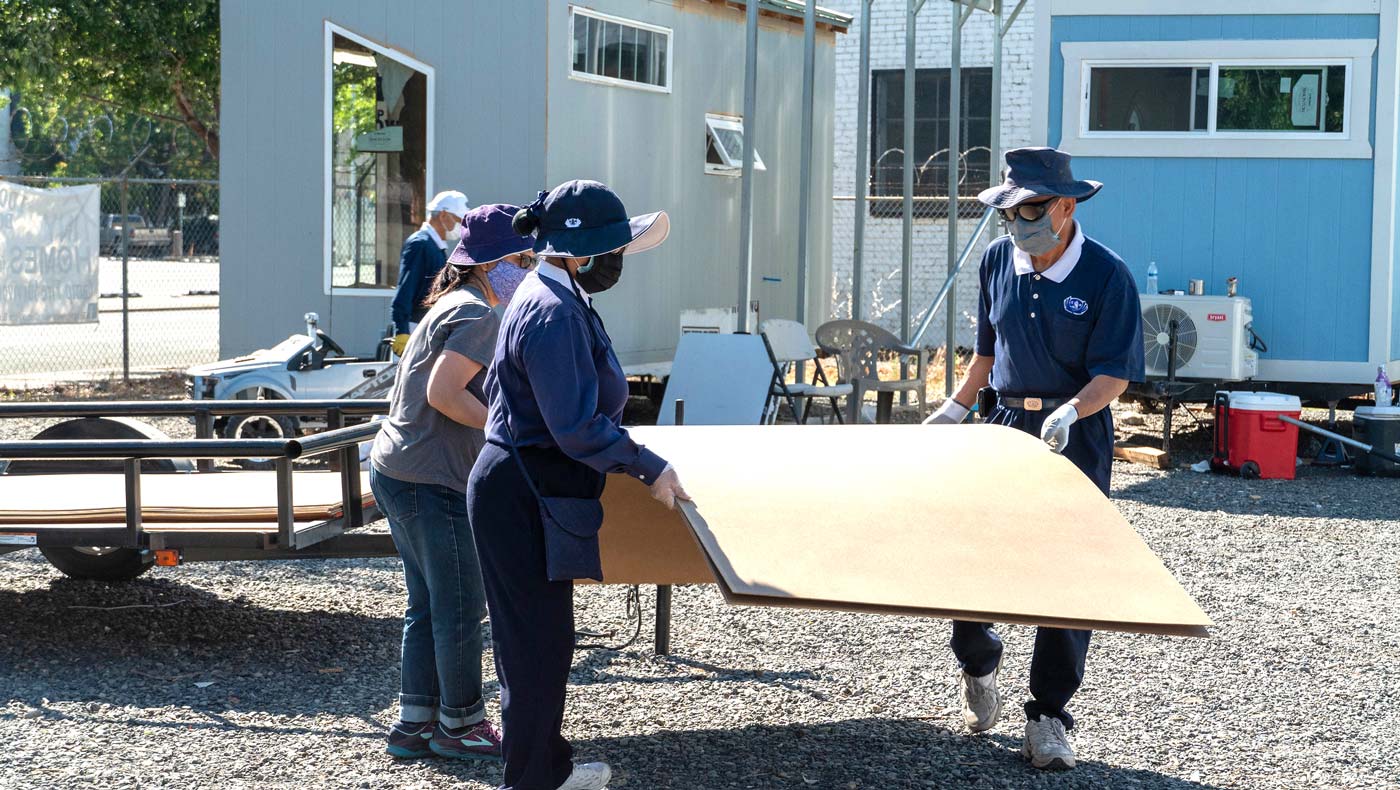
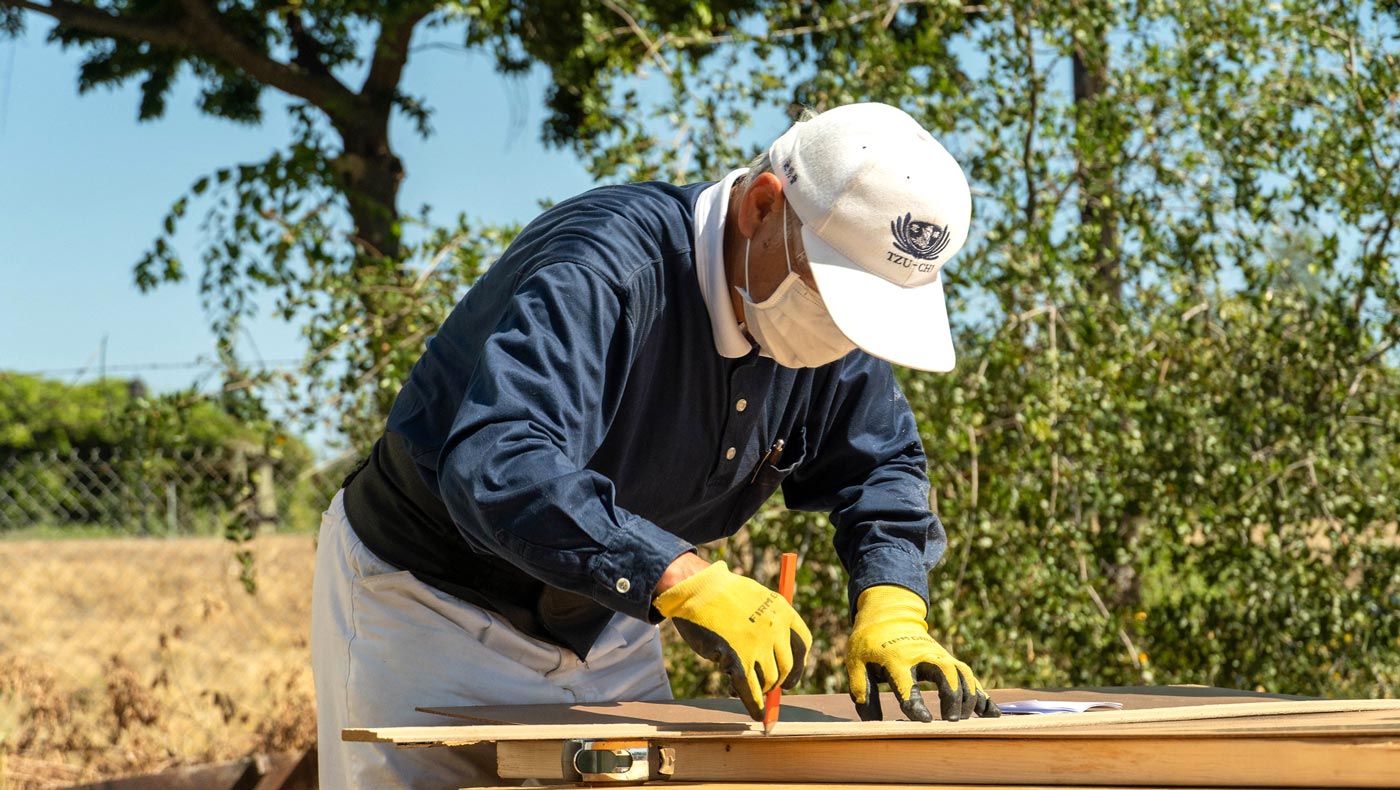
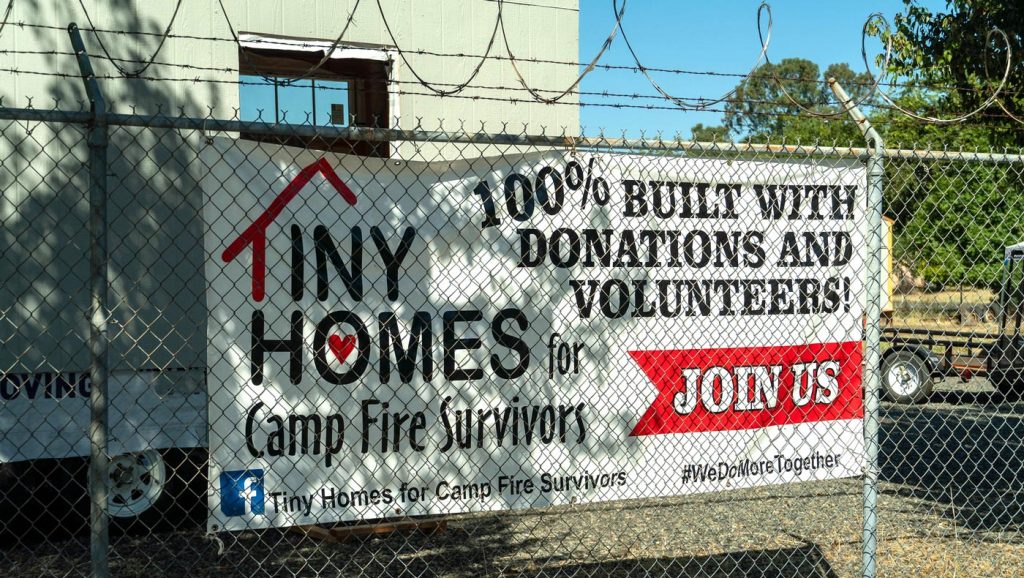
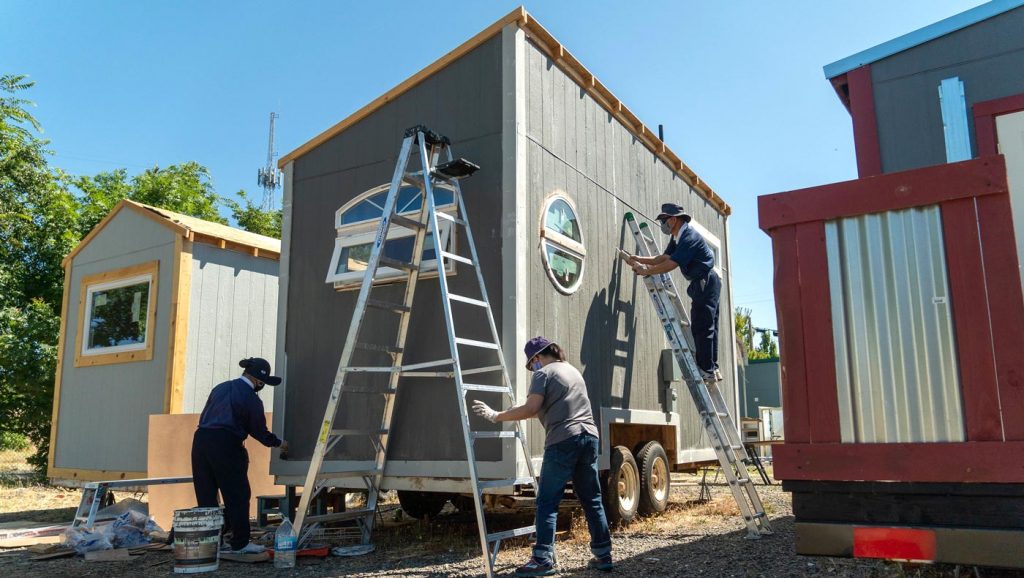
Additionally, several future beneficiaries of a house from Tiny Pine Foundation are under the care of Tzu Chi USA’s disaster case managers. Not surprisingly, Nolan-Cain is thrilled about partnering with Tzu Chi Chico in the work of Camp Fire recovery:
You guys [Tzu Chi USA] are like us, you guys are like a tiny but mighty army, and you make a big impact. To partner with some like-minded organizations, we make a bigger impact working together. Today we’re able to serve many people with various needs because we partner.
Alyssa Nolan-Cain
President & Founder
Tiny Pine Foundation
Where There’s a Will There’s a Way
For such stories to have happy endings, with once seemingly impossible dreams realized, disaster case managers have to be imaginative and cast a broad blanket of care, so no one is left in the cold, even if their circumstances are unusual. The case of Tamra South demanded just such an application of heart and will.
When Tamra first heard that her home in Magalia was still standing and reportedly only had smoke damage from the Camp Fire, when so many others in Butte County had burned to the ground, understandably, she was ecstatic. Unfortunately, that joy was short-lived as a chain effect of unexpected consequences and challenges were soon to follow, leaving Tamra utterly frustrated and feeling helpless for years.
First of all, she was ineligible for most immediate relief funds. “A lot of the money that was being handed out was for everybody that was completely burned out,” she explains, and only the roof of her home had incurred some damage from embers.
Tamra, a single mother with limited income, couldn’t afford to make the necessary repairs, and soon enough, water leakage from rain and snow caused further damage. Then the mold set in throughout the roof, all the insulation, the whole house, everything.
Gradually, the deterioration in the condition of her home became increasingly severe, bringing the residence to the risk of collapse with a “DO NOT ENTER: UNSAFE TO OCCUPY” red tag from Butte County. “Nothing on this is repairable now,” Tamra sadly concurs.
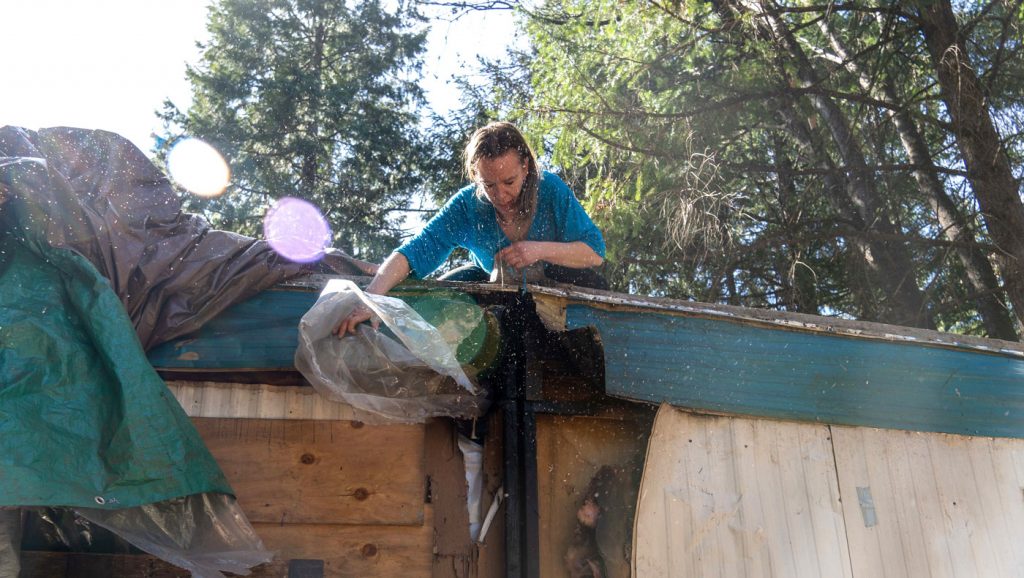
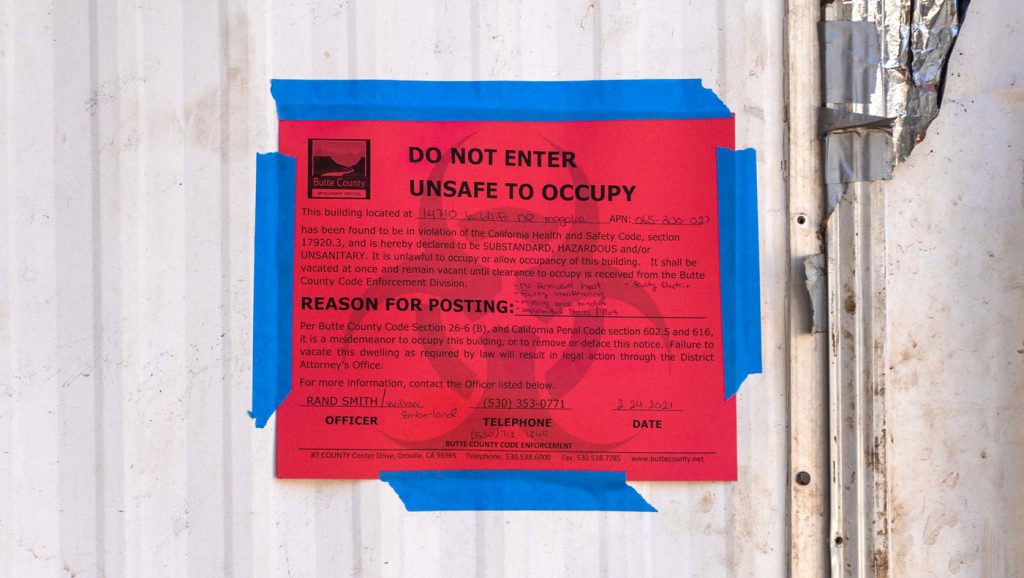
Without recourse to insurance claims, loans, or other types of financial aid, no one would blame Tamra for feeling despondent. Baba Kauna Mujamal, a disaster case manager at the Tzu Chi Chico Recovery Center, took charge of her case and was filled with sympathy as he set out to help her build a recovery plan.
Tzu Chi Chico’s whole team put their heart and benevolent will in motion, and in March 2020, they helped the single mom acquire a second-hand trailer. It’s the first step in the family’s recovery, but they still have a distance to travel.
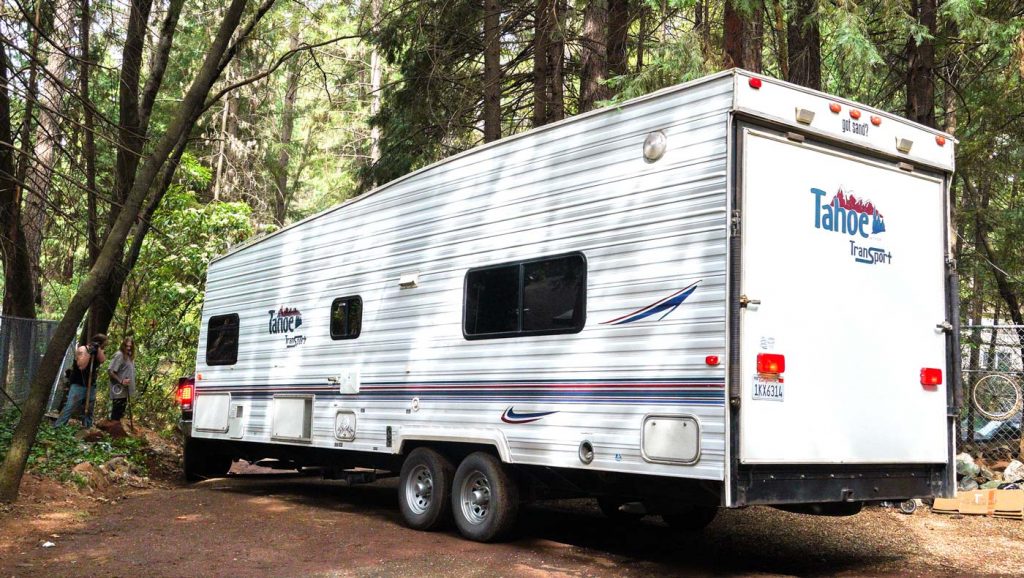
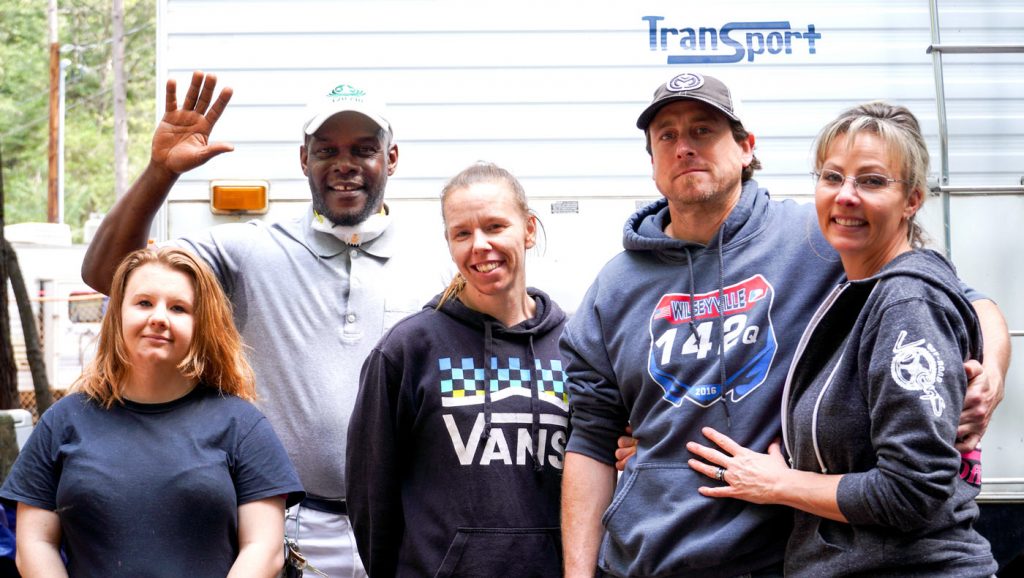
For now, Tamra’s teenage children stay at a family member’s house as the trailer is too cramped for everyone to share comfortably, so they opted for this temporary arrangement. Still, Tamra’s recovery goal has never shifted. It is to rebuild her original home even though she will also have to absorb the cost to demolish and remove the damaged structure and trees on the property before construction can begin.
Reaching for Happy Endings Case by Case
Tzu Chi Chico Recovery Center disaster case managers are currently in charge of 46 active cases progressing towards full recovery. As of April 16, 2021, the disaster case management team has also helped 15 families obtain stable housing, including rentals, and four families secure temporary accommodation, such as fifthwheel trailers. The goal is for every family to recover that feeling of “Home Sweet Home” as soon as possible.

